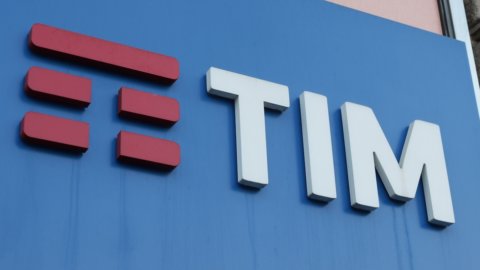Goldman Sachs' view on European equities worsens. In a new report published in the aftermath of the first day of war, the analysts of the American investment bank have reviewed their forecasts for 2022 reducing growth estimates and revising those for inflation upwards. Inflation is now seen to peak at 6,5% in May, before slowing to 5,4% by the end of the year, while growth is projected to fall by 0,2pp while noting that " Eurozone growth momentum remains solid this year, given the strong rebound after Omicron variant winter weakness, sustained fiscal support and scope for growth in services.
The conflict exacerbated a energy crisis in Europe, which relies heavily on Russian imports, just as central banks prepare to tighten policy to address already high price pressures. Europe is also expected to be hit harder than the US, due to its closer economic ties and geographical proximity to the conflict. “Rising energy prices will likely push inflation higher and any restriction or disruption to energy supplies, especially gas, in Europe would also have implications for output and GDP,” analysts wrote at Goldman Sachs led by Sharon Bell in a note to clients.
And that precisely "in the light of the conflict, the increase in risk aversion (which will probably continue) and the impact on the growth/inflation mix, we are lowering our price targets".
Europe risks paying the highest bill of the conflict: target 2022 downwards
Now the US investment bank indicates for theEurope Stoxx 600 index – the index that brings together the stocks of the 600 largest companies in Europe covering around 90% of the European stock market – a target of 490 points in one year, from the 530 previously indicated, and their expectation for the Euro Stoxx index 50 of the blue chips to 4.300 from 4.800, while they raised their forecast for the UK's FTSE 100 index to 8.100 from 7.900.
The UK large-cap index "has proved more resilient to both rate hikes and concerns about rising energy costs," they said. "The index has almost no exposure to the technology sector and has a heavy weighting in value stocks and financials."
Goldman Sachs: deterioration of the growth/inflation mix
The recent escalation in Ukraine has worsened the mix of growth and inflation in European asset markets. Equity markets are down as much as 6% today, and 2-year European inflation swaps hit all-time highs around 3,5% on the back of higher commodity prices.
The bank's economists said the "shock from rising energy prices" could lower euro-zone growth by 50 basis points. There are three channels that weigh on growth in the euro area. First, the drop in stocks could weigh on European activity trade with Russia and Ukraine: Euro area exports to Russia and Ukraine amount to only around 1% of its GDP. “We estimate that a 10% drop in demand in Russia would lower the euro area's GDP by only about 0,1% through the commercial channel,” Goldman Sachs analysts underline.
The second, the American investment bank believes that the effects on growth will weigh European energy markets. With the rigidity of the labor market and the potential negative income shock for consumers deriving from the increase in energy prices, a brake on the level of GDP in the euro area is estimated to be around 0,1% by the end of 2022 and 0,4% in the 30% energy hike scenario.
Finally, the impact may be greater if the Western sanctions pressured the Russian president to cut off gas supplies. In the short term, a disruption of gas flows through Ukraine could lead to a 1% drop in GDP in Germany and France and up to 3% in Italy. “The magnitude of these blowbacks is significantly larger than the drag on consumer spending from higher gas prices discussed above, although the impact on production would likely be temporary and production would recover once normal gas supplies are restored.” , the experts point out.
Spread alarm and Btp rates
Similarly, worsening growth prospects, and consequently limited scope for ECB policy support and likely increased pressure on government budgets due to cost-of-living pressures, all point to broader spread short-term sovereigns, with a decline in bund yields of 10-15 basis points.
Analysts had expected 10-year Btp-bunds at 175 basis points from the "normalization" of monetary policy, but given that we now face further downside growth risks of the order of 0.5% of GDP, they believe this should imply closer spreads to 185 basis points with a possible overshoot of 200 bps.





